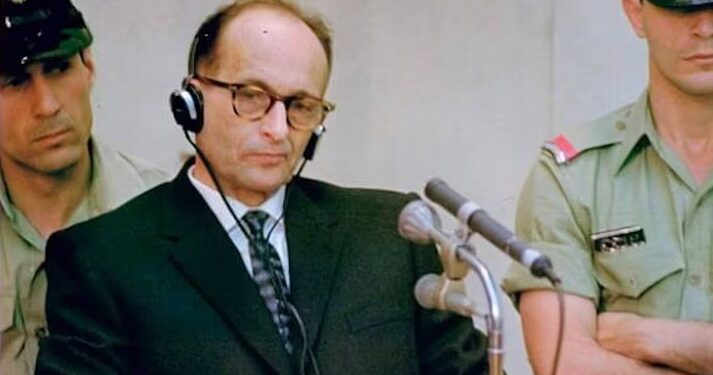On April 11, 1961, the world turned its attention to Jerusalem as one of the most pivotal war crimes trials of the 20th century commenced. Adolf Eichmann, a senior Nazi official and one of the chief architects of the Holocaust, stood in a glass booth in an Israeli courtroom, facing justice for his role in orchestrating the murder of six million Jews during World War II.
Captured by Israeli Mossad agents in Argentina in 1960, Eichmann had been living under the alias Ricardo Klement. His covert extradition to Israel sparked international controversy, but it also set the stage for an unprecedented legal and moral reckoning. For the first time, a major Nazi figure was being held accountable not in a military tribunal like Nuremberg, but in a civilian court, and within a Jewish state formed in the aftermath of the Holocaust.
The trial, presided over by three judges, unfolded with global media coverage and intense public interest. It was broadcast on radio and later televised, bringing survivor testimonies and chilling historical documentation into homes worldwide. More than 100 Holocaust survivors took the witness stand, many speaking publicly for the first time about their harrowing experiences.
Eichmann was charged with 15 counts, including crimes against humanity, war crimes, and crimes against the Jewish people. Throughout the trial, he maintained that he was merely a bureaucrat following orders, a claim that tested the moral and legal limits of personal responsibility in state-sanctioned atrocities.
The proceedings were as much about justice as they were about education and remembrance. For many, the trial was their first exposure to the full horrors of the Holocaust, conveyed not only through evidence but through the voices of its victims. It helped solidify the narrative of the Holocaust in global consciousness and highlighted the dangers of blind obedience to authority.
On December 15, 1961, Eichmann was found guilty on all counts. He was sentenced to death and was executed by hanging on June 1, 1962—the only civil execution ever carried out by the State of Israel.
The trial of Adolf Eichmann marked a watershed moment in international law and human rights, affirming the principle that those who commit crimes against humanity will be held accountable, regardless of rank or geography.
newshub



Recent Comments